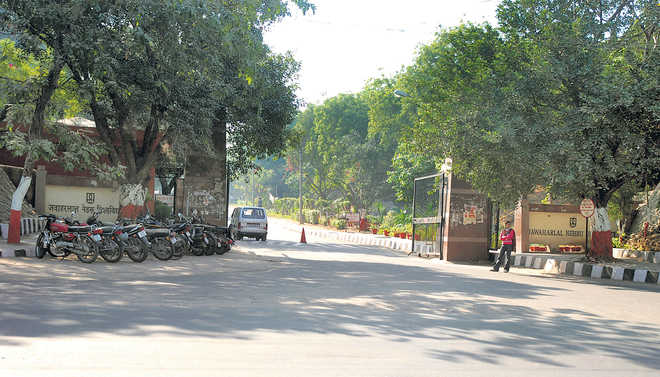
Avijit Pathak
Professor of Sociology, JNU
Jawaharlal Nehru University, despite its intellectual vibrancy and reasonably satisfactory academic performance, is in a crisis. Possibly, some sort of 'legitimisation crisis' emanating from a broken communication between the caged administration and the larger community of students and teachers has created a toxic environment of perpetual doubt and suspicion. In fact, in recent times, as reported in the media, the nature and process of recruitment of teachers has generated widespread controversy. The recruitment of the faculty in a university is a delicate issue, and if not handled with great care, its consequences can prove to be disastrous. Even if we abandon the 'moralistic' proposition of good teachers as 'role models', none can deny the fact that bad teachers destroy the academic potential of generations of young learners. It is, therefore, important to realise that if the Vice-Chancellor begins to compromise on the quality of teachers for factors relating to politics, ideology and networking, we would play with the fate of students.
Qualities of faculty
However, the question is what sort of qualities we ought to strive for while recruiting the faculty in a liberal university like JNU. I wish to stress on three qualities.
1First, apart from solid grounding in the respective discipline, it is important to be creative, to think differently, and to see beyond the dominant paradigm because without this creative surplus, no meaningful research is possible.
2Second, as a university is a site of teaching and dissemination of ideas, a teacher ought to be a good communicator capable of arousing the imagination of young learners.
3Third, a liberal university demands a dialogic spirit — a profound art of listening: the willingness to listen to the plurality of perspectives, even the worldviews of the philosophical/ideological opponents. In other words, creative openness has to be seen as an asset for a university faculty. Imagine the wonderful moment: beyond 'left' and 'right' - a professor of philosophy persuading her students to read Sarvepalli Radhakrishnan's The Principal Upanishads as well as Debiprasad Chattopadhya's What is Living and What is Dead in Indian Philosophy!
The JNU teachers
Has JNU necessarily always found these qualities in its teachers? Well, the university is still known for its teachers characterised by the spirit of openness, dialogic spirit and political, but not partisan, outlook. However, here is also an ideologically charged university continually reproducing a strange classification of 'Marxist', 'Ambedkarite', 'feminist' and 'Brahminical/ patriarchal/rightist' teachers. If with this ideologically loaded self-perception and burden of political baggage we begin to interact with students, even our 'academic brilliance' will not enrich the ethos of epistemological pluralism; and without this elasticity of mind, the liberalism of a liberal university is bound to fade away.
How to find a good teacher
The moot question is how do we find teachers of this kind. Even though we have created a society that devalues creative and critical thinking, and the UGC bureaucracy believes in quantifying dull/routinised/ stereotypical publications and papers produced in the rapidly growing 'international seminar industry' for deciding the qualifications of a teacher, there are still good minds across disciplines. The university has to play a constructive role in tapping these possibilities. And particularly, the Vice-Chancellor ought to reduce the exercise of his 'discretionary power', and, instead, through humility and a cultivated dialogic spirit consult the respective centres/schools for choosing the selection committee. But then, the experts too have to take their jobs seriously. They ought to see beyond the technically packaged 'Powerpoint presentation', engage in a nuanced scholarly conversation with the candidates (rather than reducing the interview into a joke by raising questions like this: Does the Koran have something to say about nationalism? Or have you done some research on gaushala?), and ask them to share a scholarly idea in a classroom because at times young minds can see what the 'burdened' experts refuse to acknowledge.
In this age of mediocrity and declining status of public universities, the seeds of creative consciousness that JNU retains should not be allowed to be destroyed. It is sad that the ruling political ideology (irrespective of its historic location and colour) often interferes in the affairs of the university. We know how the leftists, when they were at the helm of power, took special interest in the recruitment of teachers and even vice-chancellors. We also know that many celebrity 'leftist' scholars, despite their superb research and academic brilliance, played a sectarian politics of networking in many leading academic bodies. And today, with the changing political equation, there is a temptation for the 'politics of revenge'.
However, a responsible/ mature educationist is one who has the courage and wisdom to resist this temptation of power, and retain the spirit of academic autonomy. One hopes that the Vice-Chancellor of JNU values the role of a visionary educationist rather than a mere political appointee. If he loses his credibility, he would do a terrible damage to the university and its young minds.



























